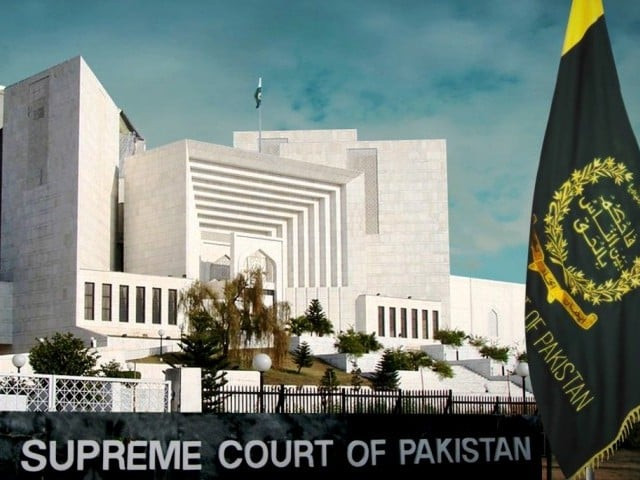Writ can’t be filed against superior court judges: SC
Says judges do not act as persona designate while exercising executive, administrative actions

The top court has declared that the superior courts judges do not come under the definition of "persons" in view of Article 199 (5) of the Constitution and therefore writ petitions filed against them are not maintainable.
"We are clear in our mind that chief justices or judges of a high court exercising their executive, administrative or consultative actions in the context of the instant matters do not act as persona designata rather act for and at the behest of and as a high court as defined in Article 192.
“Therefore, [the judges] are not amenable to the constitutional jurisdiction of a high court under Article 199,"said a 42-page judgment authored by Justice Ijazul Ahsan.
Justice Ahsan was part of a larger bench led by Chief Justice of Pakistan Gulzar Ahmed that also reversed Para 45 of a 2016 judgment passed by a three-judge Supreme Court bench against dozens of “illegal” appointments in the Islamabad High Court (IHC).
The 2016 judgment had held that provisions of Article 199(5) would bar a writ against a high court if the issue is relatable to judicial order or judgment.
“However, a writ may lie against an administrative/consultative/executive order passed by the chief justice or the administration committee, involving any violation of the rules framed under Article 208, causing infringement of the fundamental rights of a citizen,” the three-judge bench had said.
Supreme Court judge Iqbal Hameedur Rehman had resigned in the wake of the judgment as he was the IHC chief justice at the time of those hiring.
Later, in view of the 2016 judgment, the apex court had not entertained a few constitution petitions filed under Article 184 (3) against administrative orders of the high courts and had proposed to the applicants to file a writ petition in the high court.
However, the apex court in its latest judgment ruled that framers of the Constitution did not want the remedy of a writ be made available against a high court or the Supreme Court.
It said it cannot be assumed that there must necessarily be a right of appeal in cases involving administrative, executive or consultative acts or orders of the superior court judges.
It said such rights would have been expressly mentioned in clear and unequivocal terms in the Constitution if that had been intended and no interference can be drawn from Article 199.
The court noted that there is no sound basis on which judges acting in their administrative capacity fall within definition of "person".
The judgment noted that the definition of person in Article 199 (5) curiously fails to mention the Federal Shariat Court. An understanding of the historical background of the provisions pertaining to Article 199 (5) and the Federal Shariat Court is necessary to understand this omission.
It noted that when the Constitution was enacted and brought into force in 1973 then the Federal Shariat Court did not exist.
It said if the Supreme Court and the high courts are excluded from the definition of Article 199 (5) therefore immune to writ jurisdiction of the high court then the Federal Shariat Court which is also superior court for all intents and purposes is also excluded.



















COMMENTS
Comments are moderated and generally will be posted if they are on-topic and not abusive.
For more information, please see our Comments FAQ